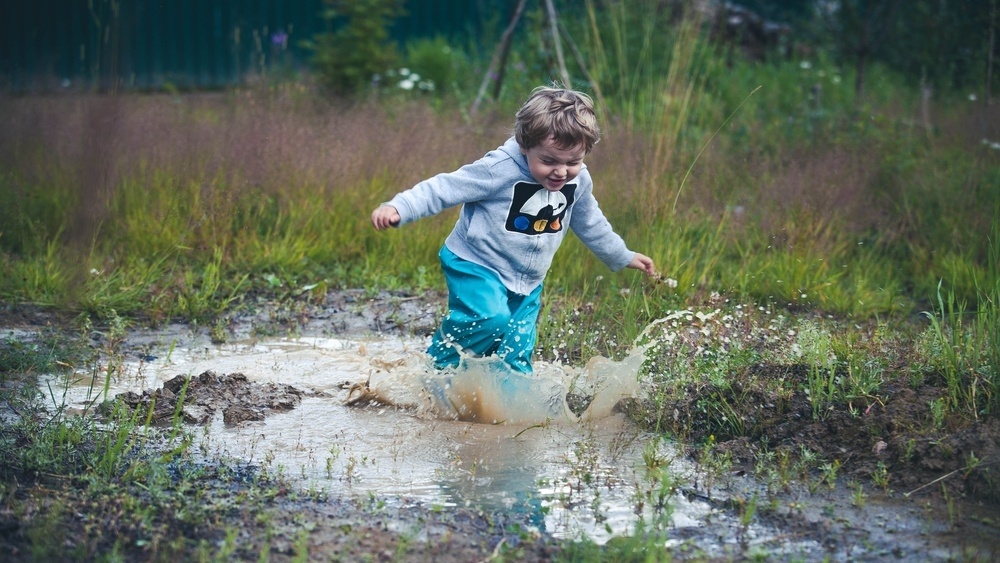
Kids aren’t exactly known to think in terms of cleanliness and maintenance. Play and fun always comes first. That means that cleaning and repairs is left to the parents. Kid’s shoes are used especially rough, therefore its crucial to think smart and chose alternatives of good quality that’s easy to take care of so that not too much of our precious leisure time goes to taking care of shoes. In fact, it does not take too much for the kid’s shoes to live longer than they will need them for.
In general, every boot and shoe should be taken care of and maintained. Kid’s feet sweat A LOT! Actually as much as up to two cl. on each foot a day only with a medium activity level. Some of the humidity evaporates through the upper on the shoe and some through the shaft. If the shoes does not have breathable qualities, the humidity will stay within the shoes and the socks. This can easily cause discomfort when wearing them, and this is the main reason that shoes should have two resting days in between every day they are worn. Not only because junior has been on underwater expedition in the kindergarten the day before, but also because the humidity that the foot secretes should have time to dry before the little one is wearing the shoes again.
To ensure the shoes lifetime and a comfortable climate for the kid’s feet, you should therefore have two or three shoes to vary between.
Washable shoes with no GORE-TEX-membrane
For shoes that are machine washable, we recommend taking out the inner sole before washing them, keep the water temperature at a maximum of 30 degrees Celsius, avoid fabric softener, and tumble drier. Quick drying in front of the fireplace is also not advisable because the glue that keeps the sole in place can loosen. Shoe dryers are ok if you only use air and not warmth. Drying cabinets, ovens, fireplaces and warm bathroom tiles are not to recommend. Instead, allow the shoes to dry in room temperature, and preferably use newsprint paper to extract excess moisture. Remember to change the paper, as it gets wet.
Shoes and boots with GORE-TEX-membrane
Shoes with GORE-TEX-membrane keeps the feet dry, but pay attention to the fact that it doesn’t necessarily mean that the outer part of the shoe is waterproof. If water is allowed to enter the membrane, the shoe will get very heavy to wear, hard to dry; it can lose its shape, and finally is ruined.
Most of our GORE-TEX-models can be machine-washed at 30 degrees Celsius. Check the washing tag. Otherwise, we recommend the following maintenance routines:
- Clean the shoe externally with a soft brush or cloth and lukewarm water.
- Remove the insole.
- Rinse away sand, gravel and dirt – even inside the shoe.
- Allow the shoes to dry in room temperature. Avoid direct heat from stoves and shoe dryers. (Make a brave attempt to explain to junior that warming the shoes by the bonfire is not preferable, and then instruct the staff in kindergarten).
- GORE-TEX shoes with leather upper must be impregnated. Apply impregnation spray when the shoes are dry. This is only necessary when the original surface treatment is worn off or after rough use. Do not use oil or silicone based impregnation.
- Routinely clean the inside of the shoe by filling it with lukewarm water and leave it for a while before shaking them well and pouring out the water.
Rubber boots
The best rubber boots are made out of durable natural rubber. This material is sensitive for sunlight and warmth, but the right maintenance prevents cracks.
- Clean rubber boots with a soft sponge and avoid using a stiff brush as this will scratch the surface.
- Use a maintenance spray suitable for rubber boots. Spray evenly on the surface, wipe over with a clean cloth and allow to dry. Repeat the process until the boots have regained their shine.
- Remove any moisture inside the boots by removing the insole and load the boot with newspaper print. The tip about using shoe dryers without heat, only air, also applies to rubber boots. Always keep your rubber boots indoors in a cool place.
Leather shoes
Leather is a sturdy material, but it is sensitive to heat and moisture. Leather is cleaned best with lukewarm water and a soft cloth. If leather shoes are exposed to excessive moisture or heat without subsequent treatment, the material will dry and contract, leaving cracks. Therefore, use shoe polish regularly and always apply the correct impregnation to the leather type. The shoe should have room temperature so that the pores in the skin opens and the impregnation penetrates deeply. Use shoe polish without silicone as this degrades the material over time.





